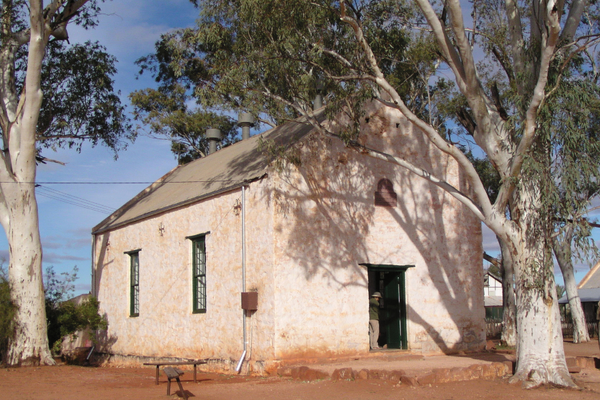Speaking About Christ in the Public Square

Consider the following two statements from the nineteenth century:
Firmly relying ourselves on the truth of Christianity, and acknowledging with gratitude the solace of religion, We disclaim alike the right and the desire to impose Our convictions on any of Our subjects. We declare it to be Our royal will and pleasure that none be in anywise favoured, none molested or disquieted by reason of their religious faith or observances, but that all shall alike enjoy the equal and impartial protection of the law… (Queen Victoria, upon Britain’s acceptance of the government of India in 1858.)[1]
I cannot expect that any words of mine can reach your hearts, but I hope that the grace of God may reach them... But this commiseration must not interfere with the stern duty, which, as a judge, the law enforces on me; which is to order that you... be hanged by the neck until your bodies be dead, and may the Lord have mercy upon your souls. (Justice Burton, in judgment upon the perpetrators of the Myall Creek massacre, 1838.)[2]
It is stating the obvious to say that assumptions about the appropriateness of religious views in public contexts have changed. Here, the truth and relevance of Christianity to public life is assumed, even when the aim is to uphold freedom of religion. Today, however, the appropriateness of ‘religious’ views in what has been called ‘the public square’ is energetically contested. One frequently encounters the view that ‘the separation of church and state’ means that religious views have no place in public life and should not be allowed to influence public policy.[3]
Christians will instinctively find it hard to agree with this view. Christian faith is not a private matter; and it knows a thing or two about law, right and wrong, freedom, punishment, and the common good—not to mention kingdoms. Nevertheless, our contemporary culture raises questions about the appropriate forms of Christian speech in the public square, that is, in open contexts of deliberation concerned with society as a whole such as the media and political discussions. On what basis, or with what authority, may Christians speak in such contexts, especially when they increasingly represent a minority position? What should be the aims of such speech? And what forms should this speech take?
We will be greatly helped in answering, or at least beginning to answer, these questions, if we make the effort to think about the place of government within God’s purposes and its relation to society.[4] Many mistaken forms of public speech stem from a failure to understand this, and a consequent unreflective endorsement of theories of government that derive from other sources.
Governments and peoples
Some kind of political authority can be observed in almost every human society in history. It is, it seems, a fact of living together: if there are going to be a lot of us human beings living in the one place, be it a town or a valley or a whole country, and if we are going to be united in some sense—if we are going to be a ‘we’—then we will need to be governed. One person, like a king, or a number of people, like a committee or a party, will rule and the rest of us will be subjects. Typically, this will involve things such as: this person or these people will have control over force, commanding the army or police; they will also be in charge of the judicial system, judging disputes that arise amongst the people; and the people will normally support the government by paying taxes. But what is actually going on here? What is government, and how does it relate to society?
We are shown the way towards an answer by Israel’s historical experience of government. We learn two things in particular from this experience.
First, government is a good gift from God. Israel’s experience of deliverance under the judges was foundational for her conception of political authority (Jdg 2:18). This role was later assumed by kings David and Solomon (2 Sam 14:17), under whom Israel reached its historical zenith (1 Kgs 4:20–28; Ps 72). The narratives that conclude the book of Judges are designed to show that Israel needed government to save her from anarchy and self-destruction (Jdg 17–21, especially 21:25). Furthermore, government was always a gift. The judges and kings were ‘raised up’ by God (Jdg 2:16). They were not, that is, the natural product of the people, the inevitable social form Israel would take. Israel did not appoint her kings; God did, and Israel recognized them as God’s choice (e.g. 1 Sam 10:17–24). Government was a good gift from God.
Second, however, Israel’s experience also shows us that government can present a dangerous temptation. As the books of Samuel go out of their way to emphasise, the move from the judges to the monarchy was profoundly ambiguous. On the one hand, it allowed for a more stable exercise of the functions of government, one which was sorely needed (1 Sam 8:1–3; cf. Jdg 21:25); but on the other hand it introduced new risks. In particular, Israel’s demand for a king to save her from her enemies (1 Sam 8:20) represented a rejection of God as her sole king (1 Sam 8:7; cf. Jdg 8:22–23), and her first and only true saviour (1 Sam 10:18–19). Such a rejection carried with it the corresponding danger of Israel thinking that her identity as a people was grounded in her government, of forgetting that she had been a people before she had a king, and that her true identity was found not in her earthly government, but in Yahweh.
Israel’s experience thus unveils the theological dimensions of government. Government is both a gift and a temptation. It is a gift, because human societies depend upon, yet cannot take for granted, an order of justice and security. It is a temptation, because the one or ones who are given to provide this order can become the focus of hopes and loves that belong properly to God. Peoples are not made by governments, rather, God gives governments to peoples.[5]
Jesus and government
The gospel is profoundly political. When Jesus came, his message was, ‘The kingdom of God is at hand’, and when the apostles realized that this kingdom had come with Jesus’ death and resurrection, they proclaimed, ‘Jesus Christ is Lord!’ The gospel is about God’s kingdom, his rule, his government. God has made Jesus king and judge, and all people are called to come under his rule.
This has a significant impact on how we think about governments. If Jesus is Lord, then Caesar or the President can’t be. Jesus has ‘disarmed the rulers and authorities and made a public example of them, triumphing over them in the cross’ (Col 2:15). When Pontius Pilate confronts Jesus, his ultimate powerlessness is revealed (Jn 19:11). Because Jesus is now the world’s true king, earthly rulers are destined to pass away. The Bible describes the future as a city built by God (Heb 11:10), in which people from every nation (Rev 7:9) will live under the rule of God alone, when ‘the kingdom of the world has become the kingdom of our Lord and of his Messiah’ (Rev 11:15).
For this reason, the apostle Paul reminded a church probably full of Roman citizens that ‘our citizenship is in heaven’ (Phil 3:20), and Peter described his readers as ‘aliens and exiles’ (1 Pet 2:11). There was a more important reality now than earthly political identity.
If, then, Jesus the King has secured the good of his people, and if the destiny of all earthly rulers is to realise that Jesus is Lord and hand their kingdoms over to him, what place is left for earthly governments?
The answer, of course, is that the Kingdom has not yet come in fullness. Jesus’ reign is not yet visible. The time hasn’t yet come when ‘every knee will bow’ before Christ’s Lordship (Phil 2:11), and because of this, the Bible envisages a continuing role for earthly governments to play. We discover the nature of this role in the New Testament passages that speak of rulers as God's provision. Romans 13:1–7 and 1 Peter 2:13–17 express a conviction that even in the age of Christ, government ought to be respected. The ruler is 'God's servant for your good', whose task is to 'punish those who do wrong and commend those who do right'. Christians are therefore able to submit to political authority not just out of fear, but as a matter of conviction, 'because of conscience'. This submission is, in fact, 'for the Lord's sake', because political authority has a role within God's purposes. It sustains a social context within which the gospel can be proclaimed (1 Tim 2:1–4).
Many have been frustrated by the seeming 'quietism' of these passages; but their effect is actually quite radical. What we see here is the basis of what O'Donovan describes as a 'reorientation of politics to the task of justice'.[6] By making Christian submission to rulers a matter of conviction, on the basis of their capacity to make judgments, the apostles implicitly articulate a conception of what the legitimate role of government is. Christians submit to rulers as God's servants, who have a particular task: to protect peaceful sociality by upholding justice.[7] As O’Donovan puts it, ‘government is legitimated by its judicial function’.[8]
In the age of the Messiah, earthly government is pushed back, called to humbly perform the task of judgment until Jesus returns and human society finds its perfection. This role is the Bible’s idea of secular government. From the Latin saeculum, the word ‘secular’ originally described that which was relevant to this ‘age’, rather than meaning ‘non-religious’. As O’Donovan helpfully expresses it:
The most truly Christian state understands itself most thoroughly as ‘secular’. It makes the confession of Christ’s victory and accepts the relegation of its own authority… The essential element in the conversion of the ruling power is the change in its self-understanding and its manner of government to suit the dawning age of Christ’s own rule.[9
Secular government under the rule of Christ
What would it look like for a government to accept and pursue this restricted self-understanding? A full answer is well beyond the scope of this essay; however, we may suggest at least the following features.
- Good government is government under law. O’Donovan highlights the significance of this idea in the history of Christian political reflection. A ruler was never a law unto himself: political authority is accountable to a higher authority, and in the period loosely described as ‘Christendom’ this led to the conviction that government ought to make provision for its own removal in certain circumstances, as well as to the notion of international law. The ‘legal-constitutional conception’ of government is a ‘legacy of Christendom’.[10]
- Good government will respect, but not idolise, the community it represents. All true political authority represents a people in the sense that it acts on its behalf and with its recognition. This representation must be respected by government. Political authority can evaporate without it.[11] Yet good government will not regard securing the identity of the community it represents as its first and ultimate responsibility. It will not protect this community at all costs. And it will not promote this community through unjust means. One striking example of this principle is the Christian tradition of thinking about war in terms of judicial action: war should not be entered into for political and economic reasons, but only when it can be meaningfully conceived as an act of just judgment.[12] A government must reflect, but must not worship, the community it represents. Failure to attend to this principle has paralysed debates over mutliculturalism and immigration.
Good government will recognise its limited capacities.[13] On the one hand, it is limited by its capacity to know the truth about persons and situations. There are some things—the inner secrets of the heart, for instance—that it can never truly know and so should not attempt to judge. On the other hand, political authority is limited by its capacity to effectively act in a way that sustains human community. Imagine a modern Western government attempting to enforce criminal penalties against adulterers. Though for Christians there may be no doubt about the wrong of this act, for a government to attempt to judge it in a culture of promiscuity and marriage breakdown would be deeply problematic. These limitations restrict the possibilities for meaningful action available to governments. Governments cannot do some things, and they should not try to do things they cannot effectively do.[14]
Good government will therefore fundamentally be modest about its capacities and humble in its aspirations. It will recognize that not everything that should be done can be done, and not everything that can be done should be done by it. Yet within its sphere of competence and authority, it will seek to judge truthfully and effectively, in accordance with God’s word and his justice.[15] As Augustine put it,
We Christians call rulers happy, if they rule with justice; if amid the voices of exalted praise and the reverent salutations of excessive humility, they are not inflated with pride, but remember that they are but men.[16]
Why do the nations rage?
Governments, however, are not always good. Romans 13 and 1 Peter 2 describe the place given to government in this age; but their authors well knew that rulers could reject this attenuated role. Elsewhere in the Bible we see another possibility for government in the age of the Messiah: instead of recognizing that Jesus is Lord, political authorities can fight back, standing against the kingship of Jesus and his claim on them. The earliest church was well aware of this possibility. Jesus had been crucified by political rulers (Acts 4:27); and Christians frequently found themselves opposed by a formidable array of earthly authorities. They interpreted this experience through the lens of Psalm 2 (Acts 4:25–26). The ‘kings of the earth’ could resist the rule of the Messiah and ‘rage’ and ‘take their stand’ against him.
Government can become demonic, a force actively opposed to Christ and his kingdom. This possibility may underlie the description of the ‘Man of Lawlessness’ in 2 Thessalonians 2. It is certainly described by John in the image of the beast in Revelation 13, which represents a totalitarian political government that ‘exercises authority’ over all peoples (v7–8), demands exclusive allegiance and worship (v8, 14–15), and uses economic sanctions to enforce its dominance (v17). The beast is the demonic potential of political authority in the age of the Messiah. One can only wonder how the twentieth century might have been different if we had been more sensitive to John’s warnings about the dangers of governments that demand total allegiance.[17]
In the age of the Messiah, therefore, earthly governments face a choice. It is essentially the choice presented in Psalm 2: the nations and kings of the earth may either ‘rage’ against God and his anointed, and seek to ‘burst his bonds asunder’; or they may ‘be wise’ and recognize the security of Christ’s kingship and the destiny of the whole earth to come under his rule, and come and ‘kiss the Son’ and serve him, accepting their chastened, but important role of defending the common good through judgment.
Prophetic speech in the public square
What, then, of Christian speech in the public square? We have taken a long route to return to our initial question.
We are now in a position to understand the basis of Christian speech in the public realm. Despite ‘the separation of church and state’,[18] Christians may speak in the public square for at least three reasons. First, governments are accountable primarily to God, not the electorate; they are God’s servants, not the people’s. However unbelieving a government, political authority is raised up by God and will be held accountable to him. Therefore Christians may speak, for they are those who are aware of the Word of God. Second, political representation is not simply a matter of proportional reflection of the electorate. Government is a gift, and representation is something that is given.[19] Christians may speak not simply because they are a statistically significant minority; they may speak because this government is their government, given by God to represent them. Third, Christians may speak in the public square precisely because the public is more than the political, because a people is more than a government, because there is a public square that is greater than the operations of the state.
The aims of Christian speech also flow out of these reflections. Most broadly, Christians will aim to promote the common good. St. Augustine famously saw a parallel to the church’s existence in the midst of a pagan empire in Israel’s experience during the Babylonian captivity.[20] Although she was living under an order she did not belong to, Israel was called to ‘seek the good of the city’ (Jer 29:7). The reason for this was that there was a limited harmony of interests between Israel and Babylon, and so Israel was assured that ‘in its welfare, you will find your welfare’ (Jer 29:7). A similar harmony of interests exists between the church and the societies within which it journeys. The mission of the kingdom goes forward through peaceable and quiet lives that win the respect of outsiders (1 Tim 2:2; 1 Pet 2:11).
Seeking the common good will particularly mean seeking to promote good government. This in turn unfolds in two directions. On the one hand, it will involve detailed engagement in specific issues, seeking to promote judgments that are true and effective, and reflect the character of God’s justice. On the other hand, and behind all these detailed engagements, promoting good government will mean reminding governments of their restricted role and calling them not to exceed it.[21] Christians are called to the task of reminding governments that there is one who is their ruler, too, and that their people owe first allegiance to him. The kings of the earth need to continually to be called to ‘be wise’ and to ‘heed warning’, lest they be tempted to rebel against the life-giving rule of the Son.
Consequently, the forms that Christian speech in the public square takes will vary depending on the situation. At times, it will be the speech of the ‘priest’, engaging with the details of legislation and public issues in a substantially friendly environment. At other times, it will be the speech of the ‘prophet’, who stands against and denounces the idolatrous pretensions of political authority, and the corruption of society. If the fears of some about the signs of the times are correct, it may be that the time for priestly speech is gradually coming to an end in Australia and much of the West, and that Christians will more and more find themselves adopting the posture of the prophetic witness.[22] Such a posture will not likely be pleasant (Rev 11:1–10); but the end will be life, and the hope that one day the city that has been debased (Rev 11:8) will be renewed as ‘the holy city’, the new Jerusalem (Rev 11:2; 21:2).
[1] Quoted in Stephen Neill, A History of Christian Missions, London, 1990, p274.
[2] Quoted in The Sydney Morning Herald, December 7 1838.
[3] Note that categories of ‘political’ and ‘public’ overlap significantly, yet need to be distinguished. There are things that are part of ‘public life’ that are not the business of government; and a Christian understanding of government will have an interest in preserving this distinction. Nevertheless, the business of government is central to ‘the public’, and so the focus of this article is on it. For a brief discussion of the public/political distinction, however, see Oliver O’Donovan, The Ways of Judgment (Grand Rapids: Eerdmans, 2005), pp55f.
[4] What follows is heavily indebted to the work of Oliver O’Donovan, especially his books The Desire of the Nations (Cambridge: CUP, 1996) and The Ways of Judgment (Grand Rapids: Eerdmans, 2005).
[5] This account of government may seem irrelevant to a modern democracy, and much political theory since Hobbes has been dedicated to understanding democracy as a fundamentally different form of political authority. However, it is arguable that democracy does not change the basic shape of government in authority over subjects, and O’Donovan’s work is to argue that political authority derives not from contract—from authorisation by the people—but from the political act, the act of judgment, which generates the experience of being subject to a governing authority. (See Ways, chs 8-9.)
[6] Desire, p233.
[7] On the relation of the concepts of justice and judgment, see O’Donovan, Ways, chapter 3.
[8] Desire, p234.
[9] Desire, p219.
[10] Desire, pp226–42.
[11] For this point, see Desire, p233, and Ways, ch8.
[12] See Oliver O’Donovan, The Just War Revisited (Cambridge: CUP, 2003).
[13] Ways, ch2.
[14] Christian engagement with the issue of abortion needs to reckon with this difficulty. Although the moral questions may be clear in many ways, the argument must include a discussion of the possibilities for effective action. The history of anti-abortion legislation in Australia should lead us to be cautious on this score. See E. Browne, The Empty Cradle: Fertility Control in Australia (Kensington: UNSW Press, 1979).
[15] Significantly, Israel came to understand this to mean that a primary duty of government was to defend the poor and vulnerable in society. See, for example, Psalm 82:1–4 and Proverbs 28:3; 29:14; 31:8–9.
[16] Augustine, City of God, 5.24, trans. Henry Bettinson (London: Penguin, 2003).
[17] For this reading of Revelation, see Oliver O’Donovan’s essay, ‘History and Politics in the Book of Revelation’ in Oliver O’Donovan and Joan Lockwood O’Donovan, Bonds of Imperfection: Christian Politics Past and Present (Grand Rapids: Eerdmans, 2004), pp25-47.
[18] Although we should remember that the Australian understanding of this ‘separation’ is somewhat different to the North American understanding. See Tom Frame, Church and State: Australia’s Imaginary Wall (Sydney: UNSW Press, 2006).
[19] On O’Donovan’s distinctive understanding of representation, see Jonathan Chaplin, ‘Representing a People: Oliver O’Donovan on Democracy and Tradition’. Political Theology 9/3 (2008) pp295–307.
[20]City of God XIX.26
[21] There are, of course, many further questions about what this looks like in practice. O'Donovan's conception of government-as-judgment is not meant to simply affirm ‘small government’; rather, it is meant as a way of conceiving of the task given to political authority. Thinking about the legitimate role of government as judgment will, certainly, have an effect on the proper scope of state responsibility, but it should not be assumed in advance what effect this will be. See Ways, p66.
[22] See, e.g. David Bentley Hart, Atheist Delusions: The Christian Manifesto and its Fashionable Enemies (New Haven: Yale UP, 2009).
Leave a comment
Comments will be approved before showing up.



